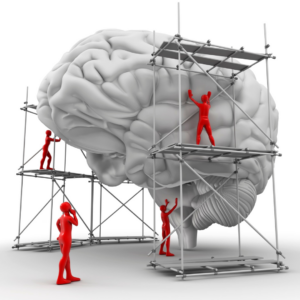10 Things You Probably Don’t Know About Your Teen’s Brain
As a parent, understanding your teenager’s brain is seriously fascinating and super important for helping them grow and develop. You know, during adolescence, their brain goes through some major changes that affect how they act, feel, and make decisions. It’s like their brain has two sides – an impulsive one and a cautious one – and these sides team up to keep things in balance.
But here’s the deal: during the teenage years, that impulsive side tends to take the lead, while the cautious side is still playing catch-up. And that’s why we see all those behaviours we associate with teenagers – you know, being impulsive, the unpredictable stuff, pushing boundaries, emotional roller coasters, and sometimes taking risks.
I totally get it; dealing with all these changes and roller coaster emotions can be nerve-wracking as a parent. But here’s the silver lining: most of what they’re going through is perfectly normal and necessary for their journey into adulthood.
Here are ten things you probably don’t know about your teen’s brain:
1. Your Teen’s Brain is Under Massive Construction

Ever feel like your usually level-headed teenager has turned into an impulsive decision-making machine lately? And no matter how much you try to get them to plan ahead or understand the importance of applying to UNI, it’s like talking to a brick wall? Well, before you start pulling your hair out, there’s actually a good reason behind all of this!
You see, kids’ brains go through a massive growth spurt during early childhood. By the time they hit six, their brains are already about 90-95 percent of the size of an adult brain. But here’s the kicker: that remaining 5 percent of growth happens during their teenage years and even continues into their mid-20s. Talk about a work in progress!
During this crucial phase, there’s a big makeover happening inside their heads. It all starts at the back of the brain and slowly works its way up to the prefrontal cortex, which is like the control centre for decision-making. This fancy part of the brain helps them plan things, think about actions and consequences, solve problems, and manage their impulsive urges. But here’s the catch – the remodelling of this prefrontal cortex takes its sweet time, happening at a later stage.
So, the next time your teen acts all impulsive and seems to be lacking some common sense, remember, it’s not entirely their fault. Their brain is still a work in progress, and all this rewiring is part of the process to help them become responsible adults.
2. It’s Gaining New Cognitive Thinking Skills

You know what’s fascinating? Our brains are constantly evolving and developing throughout our entire lives. But the really interesting stuff happens during those wild teenage years. During this time, kids start gaining the cognitive and decision-making abilities of adults. Sounds great, right? Well, it is, but there’s a catch.
You see, just because they have these newfound superpowers doesn’t mean they always use them wisely. Emotions play a massive role in how teenagers make decisions. It’s like their brains are more buddy-buddy with the amygdala, a region responsible for emotions, impulses, and all that wild stuff. So, when they’re in the heat of the moment, the amygdala takes charge, and that’s when things can get interesting.
Ever wondered why teens sometimes lash out unexpectedly, make not-so-great choices, or just follow their gut feelings instead of thinking things through logically? Yup, you guessed it – the amygdala is pulling some strings there. It’s like they’re on a roller coaster ride, and we’re just trying to keep up!
But hey, it’s all part of the growing-up process. As their brains keep maturing, they’ll learn to strike a balance between emotions and logic.
3. Teen Brains May Be More Vulnerable to Anxiety & Stress

Teenage brains can be extra sensitive to anxiety and stress because they’re going through all these crazy changes during adolescence. We talked about how the brain gets rewired during this time, and some parts that deal with emotions and stress are still a work in progress.
So, parents, caregivers, and educators, it’s imperative to recognise this vulnerability. We need to be there for teens during this crucial phase by creating a caring and understanding atmosphere, showing them healthy ways to cope with stress, and keeping those communication channels wide open. They’re going through a lot, and our support can make a huge difference in how they handle everything.
4. Their Brain is Set Up to Learn New Skills

Picture this: amidst all the construction and moderate chaos happening in your teen’s brain, there’s a silver lining – a stage filled with opportunities for awesome new talents and skills to pop up like wildflowers. Their developing brain is like a mouldable masterpiece, making it easier for them to learn and adapt before it sets in stone.
So, get ready for some exciting stuff during your kid’s teenage years! You might witness the birth of incredible writing talents or discover some hidden artistic abilities that truly blow you away. It could be a time when your soccer player starts kicking it up a notch, leaving their teammates in the dust. Or when your son or daughter’s musical talents soar to new heights, taking you by surprise.
This period of brain development is like a magic window of potential for remarkable growth and achievements in all aspects of their life. The teenage brain might be a wild ride, but it’s also a time of beautiful growth and discoveries!
5. Sleep – It’s What Their Brain Needs

Oh boy, every parent of teenagers knows the struggle – these kids seem to have an insatiable need for sleep! It can be incredibly frustrating when they stay up till all hours and then sleep in like it’s their job, right? But it’s not like they’re doing it on purpose to drive you crazy.
See, during adolescence, their natural sleep schedule goes a bit haywire because of the circadian rhythm, as if their internal clock has been set to a different time zone, making it hard for them to fall asleep before 11 p.m. And on top of that, their growing brains need that extra shut-eye to support all that cognitive development happening inside their heads.
On average, teenagers should be getting somewhere between 9 to 10 hours of sleep every night. But let’s face it, most of them aren’t even coming close to that number. However, this sleep thing is crucial during this phase of their lives. While they’re snoozing away, their brains are like little busy bees, promoting attention, memory, and sharp analytical thinking.
And here’s a cool bonus – enough sleep can even boost their creativity, ensuring their growing brains have all the support they need to bloom and thrive. So, even if it feels like they’re sleeping half their lives away, just remember, they’re doing some serious brain work during those hours! Let’s encourage them to get that rest they need so they can be their best selves.
6. FOMO is REAL for Teenagers

Okay, let’s talk about FOMO – the Fear of Missing Out – a super real thing for teenagers these days. With social media and constant connectivity, it’s become even more common. Just think about it: your teen sees all these exciting and fun things happening in their peers’ lives through updates, posts, and stories on social media. And bam, the FOMO hits!
It’s like this fear of missing out on cool events, activities, or just hanging out with friends can mess with their heads. They start feeling anxious, inadequate, and even discontented because they’re not part of all the fun stuff they see online.
You won’t believe it, but research has shown that when people experience social exclusion – like feeling left out – their brains light up with activity in regions linked to the perception of pain. For teenagers, this fear of missing out and their strong desire to fit in with their peers makes them super vulnerable to feeling that emotional pain. They value being part of the group so much that being excluded can really hurt.
So, as parents and caregivers, it’s essential to understand this FOMO thing and how it affects your kids. Let’s be there for them, offer support, and help them navigate the ups and downs of social media and friendships.
7. Risky Behaviour is at its Peak

What about pushing boundaries? Something totally normal during those teenage years. You know, as teens are trying to figure out who they are and gain some independence, they tend to test the waters by pushing limits. It’s like their way of exploring and finding their place in the world.
But here’s the kicker – their brains play a huge role in this whole boundary-testing process. Contrary to what some might think, research shows that teenagers are actually pretty good at assessing risks across different risky behaviours. It’s not that they can’t figure out what’s risky; it’s more about their prefrontal cortex, the part of the brain responsible for mature self-regulation, still being developed. So, making sound decisions can be a bit tricky for them.
Plus, they’re more susceptible to peer pressure and that internal “reward system” in their brain. It’s like some parts of their brain are extra sensitive to rewards and peer relationships, including peer pressure. So, when their friends are doing something, they might feel this pull to join in, even if it involves risky stuff.
Brain imaging studies have shown how all these brain regions work, making teens more likely to be influenced by their friends, even if it means getting into risky situations.
But don’t worry; it’s all part of their journey to becoming independent adults. As parents, you can guide and support them through this phase, helping them make better choices and navigate the ups and downs of being a teenager.
8. Moodiness: You Can Thank Their Brain for That

Ah, the teenage years – a roller coaster ride of changes and emotions! You’ve probably noticed how hormones go on a wild rampage during this time, making our teens act all erratic and moody. But here’s the thing – it’s not just those hormones causing the drama.
Their prefrontal lobe, which handles stuff like self-control, decision-making, and judgment, is still also “under construction”. So, when you ask them to do something as simple as taking out the dishes from the dishwasher or cleaning their room, they might fly off the handle in a heartbeat. It’s like they react impulsively or blow up over questions about their grades or curfew.
But hey, don’t blame them entirely – it’s not entirely within their control. See, it’s this tag-team combo of hormonal shifts and that not-fully-developed prefrontal lobe that’s causing those emotional ups and downs. It’s like they’re on an emotional roller coaster, and we’re just trying to hang on for the ride!
So, as parents, it’s essential to understand that they’re going through a lot during this phase. Let’s be patient, supportive, and give them some space when those mood swings hit. They’ll eventually find their balance as they grow and mature.
9. Their Brain Could Make Them Vulnerable to Addiction

Alright, the teenage brains and the whole coping and decision-making thing. You know, during adolescence, their brains are still a work in progress – like a construction zone in their heads. And because of that, they might not have the best coping skills just yet, which can lead to some risky behaviour.
When they feel that they want to fit in and be accepted by their peers, they might turn to alcohol, drugs, or even prescription pills as a way to cope or feel like part of the crowd. These substances can trigger some “reward chemicals” in their brains, giving them a sense of pleasure. And with teens being all about seeking immediate gratification, it can become tempting for them to use these things to deal with life’s pressures.
But here’s the thing – you can make a difference as their parent! It’s super important to have those early and open conversations with your teens about the risks of drinking and drug use. You can help them find healthier ways to cope with stress and anxiety, like getting into exercise, mindfulness practices, finding cool hobbies, or getting into sports. By encouraging these alternatives, you’re fostering positive habits that can help them navigate the challenges of adolescence with strength and well-being.
10. The Brain Remodel Doesn’t Last Forever

You know, as your teens’ brains go through this intense transformation, there are some tricky spots you need to steer them away from. But hey, the good news is that the more you learn about what’s happening inside their heads and how totally normal it all is, the better you can support them through this wild brain construction phase.
It’s all about educating one’s selves and your kids about the fascinating processes going on in their brains. When you understand what’s going on, you can be better equipped to handle whatever comes your way during this roller coaster ride. And that means supporting your teens with a lot less drama and a whole lot more ease.
So, let’s foster understanding and awareness together. By doing that, you can help your kids sail through this period of intense brain-building with minimal turbulence. You’ve got this! And with your support, they’ll rock this crazy journey of teenage brain development!
